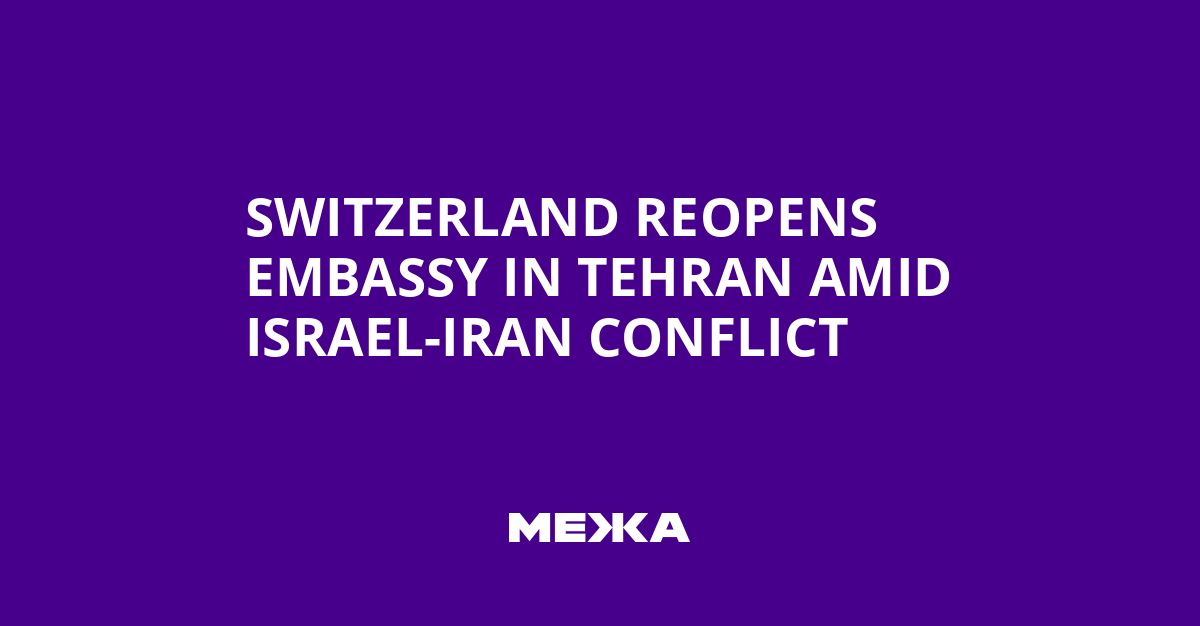On July 6, Switzerland announced the reopening of its embassy in Tehran, which had been closed on June 20 due to the escalation of the conflict between Israel and Iran. This information was confirmed by the Swiss Ministry of Foreign Affairs.
Ambassador Nadine Olivieri Lozano, along with a small group of diplomats, returned to Tehran by land through Azerbaijan.
“The decision to reopen the embassy was made after a comprehensive risk assessment and consultations with Iran and the United States, for whom Switzerland represents Iranian interests as the protecting power. The current situation allows for the gradual resumption of the embassy’s operations on site.”
The Ministry of Foreign Affairs noted that the process of restoring the embassy’s work will be gradual, and consular services, including visa issuance, remain unavailable at this time.
It is worth noting that on June 20, Australia suspended the operations of its embassy in Tehran, ordering diplomats and their families to leave Iran due to the deteriorating security situation. Consular staff were relocated to Azerbaijan to assist Australians leaving the country.
On the same day, Slovakia and the Czech Republic also announced the closure of their embassies in Tehran, while New Zealand temporarily closed its embassy “until further notice.” Citizens requiring consular services are being redirected to the embassy in Ankara. Bulgaria and Portugal also closed their diplomatic missions in Iran.
Israel’s Attack on Iran
On the night of June 13, Israel launched an air operation against Iran’s nuclear program. The Israeli Air Force struck numerous targets within Iran, including facilities related to uranium enrichment and military bases.
Israeli Prime Minister Benjamin Netanyahu stated that the operation’s goal is to
“strike Iran’s nuclear infrastructure, its ballistic missile production plants, and military capabilities.”
– Benjamin Netanyahu
He emphasized that the operation will continue until the mission is fully accomplished.
The attack resulted in the deaths of the commander of the Islamic Revolutionary Guard Corps, Hossein Salami, and the Chief of Staff of the Iranian Armed Forces, Mohammad Bagheri, according to the Iranian state news agency.
Following these strikes, several countries closed their airspace over the region. The IAEA expressed concern about the attacks on nuclear facilities, while Iran claimed that its nuclear sites did not suffer serious damage.
In response to Israel’s attacks, Iran launched over 100 drones toward Israeli territory. On June 13 and 14, Israel carried out additional airstrikes on key defense installations and military bases in Iran.
At an emergency UN Security Council meeting on June 13, Iran officially accused the United States of involvement in Israel’s strikes on Iranian territory. Washington denied these allegations and called on Tehran to engage in negotiations regarding its nuclear program.
